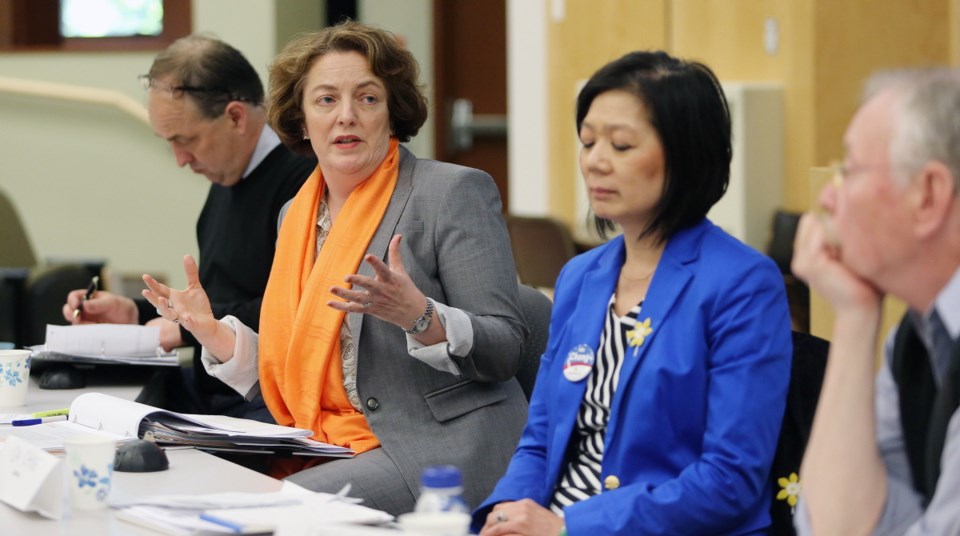The subject of Saturday’s Oak Bay-Gordon Head all-candidates forum couldn’t have been clearer.
Even before walking into the University of Victoria’s Fraser Building, visitors were presented with a sleeping bag laid out on a bench at the front door. “Homelessness is unacceptable” was the simple message that went with it.
More displays and a hallway lined with representatives from social agencies were inside. In the lecture hall — where Liberal incumbent Ida Chong, the NDP’s Jessica van der Veen, Conservative hopeful Greg Kazakoff and Green party candidate Andrew Weaver were preparing to address the crowd — a pair of colourfully dressed “Clowns Against Child Poverty” handed out pamphlets and blew bubbles.
The Greater Victoria Coalition to End Homelessness and the UVic Poverty Law Club organized the event.
Read more election coverage HERE
Read Oak Bay-Gordon Head riding profile HERE
Weaver told the crowd that homelessness in the capital region has clearly worsened over the years. “When I was a child in Victoria, homelessness was just simply not an issue.”
He said he paid a visit recently to Our Place, an agency for the street community, to see things first-hand.
“In touring Our Place, it was very clear to me that we have some fantastic success stories, but success stories are not enough. There has to be a will within the government to ensure we deal with this problem.”
Van der Veen said the province needs to change the way it deals with poverty and homelessness.
“Change means a legislated poverty-reduction plan with timelines and targets and public reporting,” she said. “Change for the better means raising income for low-income families.”
The NDP also plans to increase support for child-care spaces, which will reduce the average cost of a child-care space by about $2,000 a year, she said. Access to child care will also increase job prospects for parents, van der Veen said.
Chong said the Liberals have embarked on a regional approach to addressing poverty and homelessness.
“It takes working with community and it takes partnership to make sure that we have the right plan in the right region.”
Chong also touted employment opportunities for parents as one of the keys to dealing with child poverty. Having a job gives parents a chance to “make the choices that best meet the needs of their family.”
Chong said affordable housing units have been added in the province to help deal with homelessness. It is important to make sure those units come with the right support services for the people who live there, she added.
Kazakoff said a strong social-safety net is a core belief of B.C.’s Conservatives, and measures are being looked at to help the poor and the homeless.
“One of the things we’ve looked at is an increase in the welfare rates,” he said. “We want to have some income exemptions for child-support payments for single parents, and we certainly would increase funding for First Nations child-welfare services.”
Affordable housing is a key part of the Conservatives’ strategy, as well, Kazakoff said.



